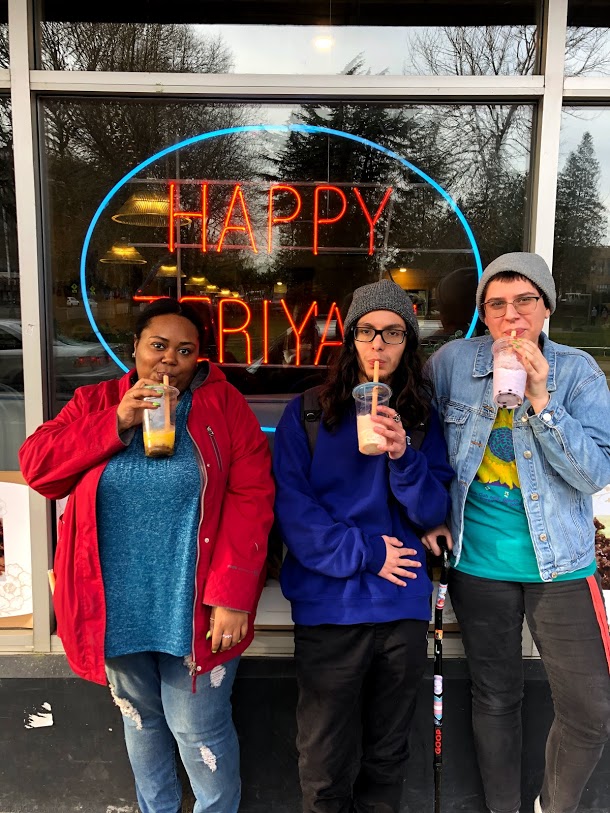Intersectionality is not a new word — it was first coined by black, feminist scholar Kimberlé Williams Crenshaw in 1989 to describe how discussions of feminism and racism often left out black women — but it’s recently made its way into the mainstream vernacular. At least that’s true in queer spaces, especially young, queer spaces.
What is intersectionality? It’s defined as the interconnected nature of such social categorizations as class, gender and race as they apply to a given individual or group. It creates interdependent, overlapping systems of disadvantage and discrimination. No single, marginalized identity is strictly its own thing anymore. Such support groups for LGBTQ+ youth as Pizza Klatch and Stonewall Youth have taken steps to address these topics.
When Pizza Klatch executive director Rosalinda Noriega was brought on, the entirety of that nonprofit was white, something that didn’t reflect the diverse groups of students Pizza Klatch serves. “The youth that we’re serving,” said Noriega, “are increasingly diverse in a number of things: not only their sexual orientation, but their gender identity, their racial and ethnic identity, their cultural identity.”
Noriega has taken steps toward recruiting facilitators with diverse backgrounds and offering ongoing support and training through a monthly program called “Deep Dish.” Listening has also been a critical aspect of her job. “What we’ve been hearing from students,” she said, “is the request to be able to talk more deeply about the issues they face, in addition to being marginalized by their queer identities.”
Those marginalizing issues include their status as first-generation family members, immigrants, people of color or young people. Noriega said the vitality of Pizza Klatch lies in evolving the conversation by looking at multiple issues, how they’re interrelated and how members of the community can support one another.
A few blocks away, Stonewall Youth has also been incorporating intersectionality into its educational programs. “Safety is a huge concern,” said the organization’s development director, Jax Mercogliano, “and we know that queer and trans people of color often still feel unsafe in LGBTQ spaces.”
One of Stonewall’s new programs is anti-racism caucusing, with a white caucus every third Friday that engages in anti-racism education. A caucus for people of color promotes community bonding with art, food and other activities. The program has been in place for over a year.
“Social justice is one of our core values,” said Mercogliano. “We challenge ourselves and each other to engage with learning as a lifelong process. We hope that by allowing for a safe space to learn, grow and build community, youth will be able to unlearn internalized oppression. Our goal is to enable them to feel ready and capable to fight institutional oppression.”
–
Article feature photo: Stonewall Youth’s People of Color Caucus poses for a casual photo in downtown Olympia.
–

